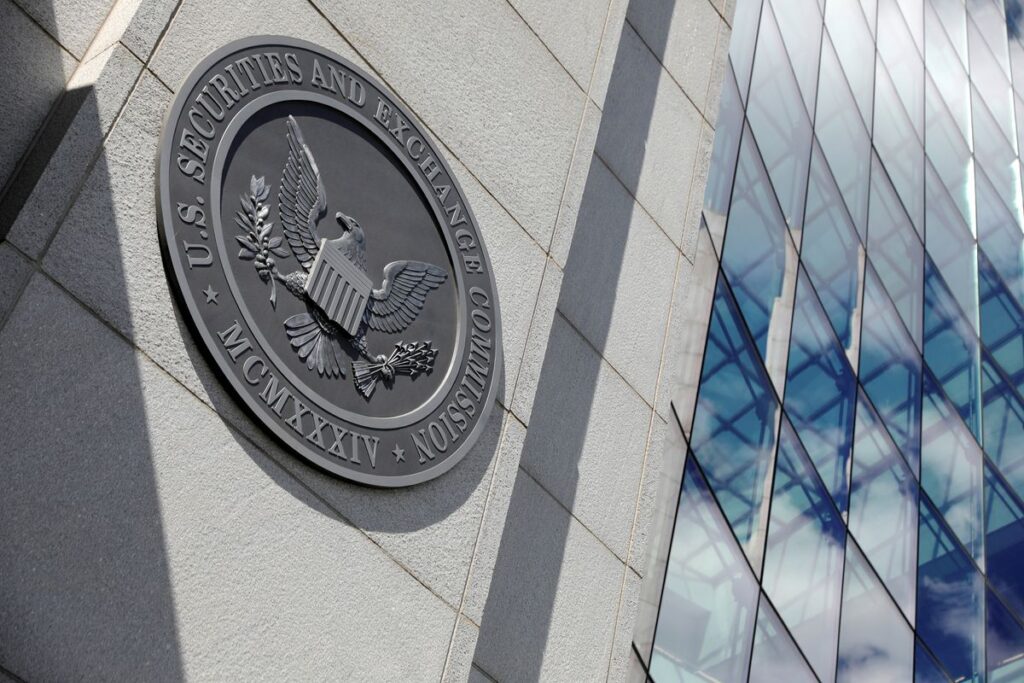The US Securities and Exchange Commission’s final climate risk disclosure rule is likely to be delayed until the fall of 2023, according to a former SEC commissioner, Robert Jackson. The proposed rule, unveiled in March 2022, would require publicly traded companies to disclose their greenhouse gas emissions and any climate-related risks to their operations. A final draft publication ruling was previously expected in April 2023, but further industry resistance and public scrutiny from the extended comment period have forced the SEC to revisit some of the precise details of the draft once again. Many companies say the disclosure rules are too expensive, complicated, and far-reaching. Currently, there are reports indicating that the Commission may weaken or altogether drop Scope 3 emissions disclosure requirements in the final rule, likely in an attempt to avoid numerous lawsuits aimed at challenging the rule after it’s finalized. Securities and Exchange Commission Chair, Gary Gensler, has yet to reveal any definitive statements on the scope 3 inclusion, but has acknowledged that far fewer companies accounted for those emissions and said the calculations weren’t as “well developed.” We will continue to provide regular updates on the SEC ruling, via this newsletter and on our blog over the coming months.
SEC Climate Disclosure Rules FAQ:
What is the climate disclosure rule?
In March 2022, the U.S. Securities and Exchange Commission (SEC) issued a new regulatory proposal that would mandate climate disclosure within financial reports for publicly-listed companies. The proposal focuses specifically on how climate risks are identified, assessed, managed, and disclosed; climate risk scenario analysis or the financial impact of severe weather and other natural events as well as transition activities; and greenhouse gas emissions (GHG). In short, calling for full transparency on plans to reduce carbon emissions and risks, and how companies are doing against those plans.
- Much of the proposal is based on the TCFD framework with added detail like many other regulatory standards in Europe. Global disclosure mandates that also take guidance from the TCFD to be aware of include, the EU CSRD, UK SDR, and the global ISSB standards.
What are the timelines thus far?
The rule was originally expected to be passed over the summer of 2022. However, the SEC ultimately extended the public comment period on the proposal until June 17, 2022, and then again issued a release on Oct. 7, 2022 (Release No. 33-11117, the “Release”) indicating that it was reopening comment periods for 11 proposed rules and a request for comment. The second extended comment period ran until Nov. 1, 2022, to accommodate the technical issue with the SEC’s online submissions system that impacted online comment submissions made between June 2021 and August 2022. The SEC initially suggested the rule would be published in December 2022 and then again pushed that date back to April 2023, but this has once again been extended. Potential delays caused by the extended comment period and extension of the rule finalization might push back the proposal’s compliance dates (the rules were originally anticipated to phase in for large accelerated filers for fiscal year (FY) 2023 reporting and all other registrants for FY 2025 reporting (2024 for accelerated filers and 2025 for smaller reporting companies).
- The rule will be introduced in phases starting with the largest issuers and moving to smaller enterprises, likely to cover more than 30,000 organizations by 2o27.
- First mandatory filings are scheduled for 2024 (using 2023 data) (The dates vary by filer type. See their date chart on page 3 and their filer definitions on page 41.)
Why is the SEC involved?
The SEC’s purpose is to ensure that investors are provided with full, transparent, and truthful information that is deemed material to the financial bottom lines. Investors want to understand the climate risks of their investments and have been quasi-mandating such data for years. Because relevant sustainability information is now widely accepted and agreed upon as material to business financial risk, the SEC is attempting to formally standardize what is already occurring across the board: disclosing sustainability data. Rather than an attempt to uproot the long-standing business practices of corporations, the rule is intended to protect companies and investors alike by ensuring that everyone is asked the same questions and that all the answers are legally reliable and easy to find.
What have we heard directly from the SEC?
- SEC Chairman Gary Gensler, testifying before the US House Financial Services Committee on April 18, said some 50,000 investors commented on the proposed rule, almost all in favor.
- SEC Chair Gary Gensler has said the SEC rule isn’t meant to bring small businesses into its ambit and that it is working through that issue.
- While Gensler said he didn’t want to “get ahead of the process” when asked about the possibility of discarding so-called Scope 3 disclosures, he acknowledged that far fewer companies accounted for those emissions and said the calculations weren’t as “well developed.”
What is the general consensus from public comments?
Various politicians and interest groups have continued to weigh in on both sides of this issue long after the SEC’s formal comment period ended. Some officials and industry leaders say the SEC has overstepped its mandate in trying to address the issue of climate change and the environment and that it will unnecessarily harm consumers, workers, and the U.S. economy if enacted. Other sustainability-focused shareholders and regulators are welcoming the rule and proceeding as though it is already in place.
- About 70% of companies intend to comply with the SEC rule regardless of when it becomes final, according to a survey released in March by PWC and Workiva. (Workiva)
- Climate activists fear that federal agencies inundated with comments are overreacting to corporate pressure and more than 50 congressional democrats are calling on the SEC to quickly finalize the rule stating in a letter:
- “This rule has already been delayed enough — and after that long delay, (the) SEC would be failing its duty to protect investors if it issues a watered-down rule missing key reporting requirements from large public companies that investors want and need,”
- “Without comprehensive Scope 3 emission disclosures, companies could also simply offload emissions-intensive activities to suppliers or downstream customers to appear cleaner without actually lowering their emissions or the resultant transition risk, or redraw their organizational boundaries so subsidiaries that they own and operate are not part of their consolidated accounting group, as is common for private equity firms,”
- A group of attorney generals from 24 states including West Virginia, Alabama, Georgia, and Florida have argued that the SEC rule would be barred by a Supreme Court decision that found congressional approval is needed for a major shift in agency policy. These groups are already promising to conduct a lawsuit against the SEC, should their mandate be enacted.
- In a recent letter to the SEC, the Chamber of Commerce cited the SEC’s own estimates to declare the new rule would be 2.5 times more expensive than the disclosures companies currently make to the SEC raising the cost brined from a total of $2.9 billion to $10.2 billion.
What is the issue with Scope 3?
- Issuers do not yet know the details of the SEC requirements for scope 3 disclosure and the key question on the table is just how stringent the SEC will be. This is the requirement that has received the most debate in the proposals comment period due to the cost and complexity of complying with a potential scope 3 mandate.
- Companies such as Walmart and Exxon Mobil have called for the scope 3 requirements to be dropped, reasoning that scope 3 creates the risk of double counting and the accounting methods are unreliable given that scope 3 depends on data inputs from hundreds if not thousands of suppliers. Even companies that will not directly fall under the ruling’s target grouping are worried about the public companies they supply requiring them to estimate emissions so that they themselves can comply with the reporting requirements.
Takeaways:
- Take advantage of the delay: Issuers in the United States should use the time granted by the delay to better prepare for the inevitable, whether it’s an SEC mandate or the ripple effects of climate disclosure mandates in Europe and in California.
- Precise details of the rule and its ability to be upheld in court do not matter: Regardless of the precise details of the final ruling and the regulatory delay, the overarching trend is clear and not to be ignored. Companies are already moving to compile the data they would need to comply. The huge uptick in private consulting, assurance, and software solution companies geared towards sustainability data and reporting is another indication of where the market is headed, whether privately or by regulatory mandate. Investors and pension funds are setting emission reduction targets for their investments and private firms are expecting companies to look into their supply chain-related emissions. Even if regulators don’t step up to require mandatory disclosure on scope 3, investors will continue to work to ensure voluntary disclosure improves.
- Costs increase over time: Costs to accomplish fully compliant business processes only increase if the work is not well underway before any deadline. In contrast, early action has the capacity to provide issuers with a competitive advantage.
- Cross-jurisdiction compliance might affect companies well before the SEC rule: Several other jurisdictions, including the European Union and some U.S. states, have adopted or proposed rules that would require companies to look at supply chain emissions. Many multinational U.S.-based companies operate in the EU, which will subject them to rules even more stringent than those proposed by the SEC (CSRD and ESRS).
Broader Trends in Disclosure to Look Out For:
- EU Climate Disclosures including Corporate Sustainability Directive will have an extraterritorial effect
- Several other jurisdictions, including the European Union and some U.S. states, have adopted or proposed rules that would require companies to look at supply chain emissions. Many U.S.-based companies operate in the EU, which will subject them to rules even more stringent than those proposed by the SEC.
- At least 3,000 US companies are estimated to be directly impacted by CSRD
- California’s adoption of SB 253 and SB 261
- On May 30th, two landmark climate disclosure bills passed the California State Senate. The two bills have additional votes to pass before being officially signed into state law, but the possibility of their adoption is high.
- The Climate Corporate Data Accountability Act would require public and private companies operating in California with annual revenue exceeding $1 billion to report scope 1, 2, and 3 emissions
- The Climate-Related Risk Disclosure Act (SB 261) would require companies with total revenues over $500,000,000 doing business in California to report in line with the Task Force on Climate-related Financial Disclosure framework to address the additional physical and transitional risks associated with climate change.
- The rules surpass the U.S. Securities and Exchange Commission’s (SEC) Proposed Corporate Climate Disclosure in comprehensiveness and since many businesses that operate in California are also active nationally, the rule could sustain stricter reporting requirements across the U.S. even if federal mandates are pared down.
- ISSB adoption influencing global climate reporting norms
- The International Sustainability Standards Board climate reporting standards will are nearing finalization will establish new global norms and will serve as the basis for regulations in jurisdictions around the globe including disclosure of scope 1, 2, and 3 emissions.
- Insurance risk disclosure
- Last year, the Treasury Department unveiled a proposed rule to collect data on climate-related risks from insurance companies following Hurricane Ian, which demolished large swaths of Florida’s southwest coast. Supporters of the rule argued that greater data collection is essential for reducing losses that can ripple through the economy.
- Federal Contractor Disclosure
- ESG litigation
- Plaintiff litigation against greenwashing and SEC scrutiny over climate disclosures is becoming increasingly common, and will only become more so as ESG reporting ramps up. Therefore, it is imperative that companies be able to substantiate their public claims and get their carbon data and calculations right the first time
How Can Your Company Prepare?
Crossing the threshold from voluntary ESG/sustainability/ and climate risk disclosure to mandatory disclosure would invoke monumental shifts in capital markets and the business-as-usual operational strategies across all industries and company sizes as the ripple effects trickle down into smaller public and private entities.
To help your company prepare, we’ve created a Guide to the 2022 SEC Climate Disclosure Rules. This extensive guide outlines and clarifies what the robust regulatory document mandates, what to expect in terms of impacts of the regulatory changes, insights into why this shift in financial and sustainability reporting is occurring, and how to prepare as a corporate entity for the future of sustainability reporting.
About WatchWire
WatchWire is a market-leading, energy and sustainability data management platform that uses cloud-based software to collect, automize, and analyze utility, energy, and sustainability data metrics. WatchWire streamlines, automates, and standardizes your sustainability reporting process by integrating directly and/or providing reporting exports to ENERGY STAR Portfolio Manager, LEED Arc, GRESB, CDP, SASB, GRI, and more. The platform provides customizable dashboards, which allow asset managers, sustainability managers, engineers, and more to monitor individual key performance indicators (KPIs) and create custom views for specific use cases. WatchWire provides:
- Automatic collection of energy, utility, sustainability, and emissions data through real-time metering. The data is then fully audited and organized in one place
- GHG emissions tracking
- Goal tracking (e.g., Net Zero, SBTi, waste diversion)
- Carbon offset view of power purchases from the grid vs. on-site renewables generated vs. off-site RECs.
- Opportunities to implement projects (track EEMs) and monitor distributed energy resource production (e.g. on-site solar)
To discover more about WatchWire and its capabilities, you can visit our website, blog, or resource library, request a demo, or follow us on LinkedIn, Instagram, or Twitter to keep up-to-date on the latest energy and sustainability insights, news, and resources.
 Top Sustainability Trends to Watch in 2025
Top Sustainability Trends to Watch in 2025

 Log In
Log In








